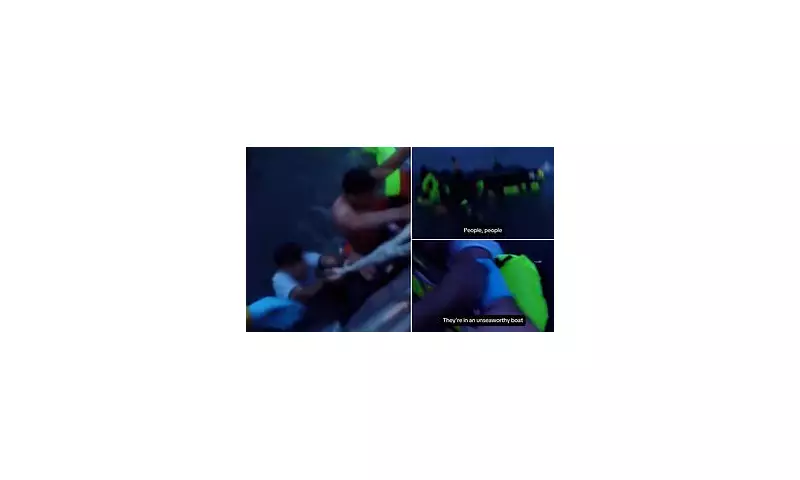
The Royal National Lifeboat Institution (RNLI) has released dramatic footage showing the moment its crews pulled 19 migrants from the treacherous waters of the English Channel. The rescue operation comes as the charity faces criticism from some quarters, with accusations that it is effectively operating as a 'taxi service' for those attempting illegal crossings.
In the video, RNLI volunteers can be seen battling rough seas to bring the distressed individuals to safety. The migrants, including women and children, were reportedly in a small, overcrowded boat that was taking on water when the lifeboat reached them.
Charity Defends Its Mission
The RNLI has strongly defended its humanitarian work, stating that its primary duty is to save lives at sea, regardless of circumstances. A spokesperson for the organisation said: 'Our crews are trained to respond to emergencies in some of the most dangerous waters in the world. We don't ask why someone needs rescuing - we simply respond when lives are at risk.'
Political Controversy
The release of the footage has reignited the debate around Channel crossings, with some politicians arguing that rescue operations encourage more attempts. However, humanitarian groups maintain that the real issue lies with the lack of safe, legal routes for asylum seekers.
Recent figures show that more than 1,000 migrants have crossed the Channel in small boats this month alone, despite government efforts to deter the crossings through tougher policies and international agreements.
The Human Cost
Among those rescued in the latest operation was a young family who told volunteers they had paid smugglers thousands of pounds for the dangerous journey. 'We knew it was risky, but we had no choice,' one survivor was reported as saying.
The RNLI has emphasised that while political debates continue, its volunteers remain focused on their life-saving mission. 'We're not border control - we're life savers,' added the spokesperson.





